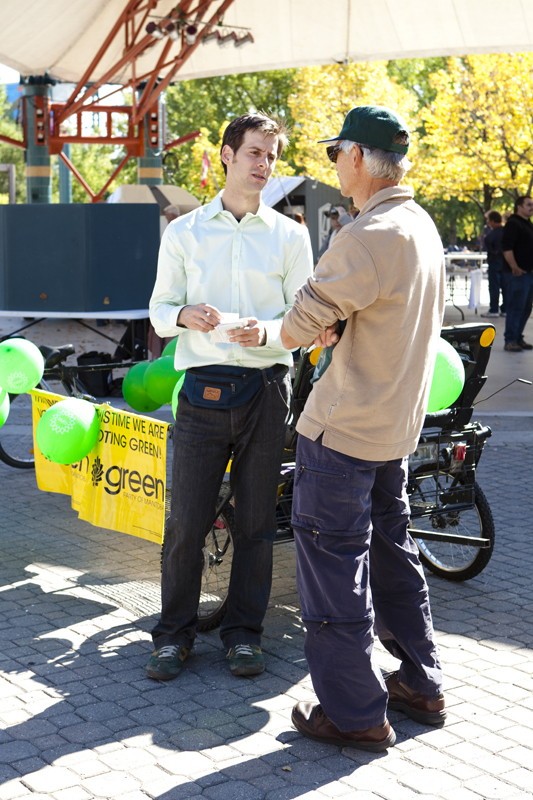Driving forward ‘bold new ideas’
Green Party leader thinks Manitobans may be in for a surprise Oct. 4
The Green Party of Manitoba may be underdogs in the upcoming provincial election, but party leader James Beddome has high hopes.
“I think people might be pleasantly surprised,” said Beddome, who is running in the Wolseley riding. “We’ve got … wonderful candidates and I think each and every one of them is worthy of everyone’s vote, and I’d really like to see a couple of them (get elected).”
Founded in 1998, the Green Party is running candidates in 32 of Manitoba’s 57 ridings for the Oct. 4 election. Safe communities, clean living and caring for the environment are key to the party’s platform.
“With the greens in the legislature you’re going to get a party that’s going to drive forward bold new ideas,” said Beddome.
Those plans include saying no to Bipole III, attacking crime and poverty with a “holistic approach” that addresses the roots of those problems, saying no to nuclear storage and transport in Manitoba and promoting preventative health care.
“ With the greens in the legislature you’re going to get a party that’s going to drive forward bold new ideas.
James Beddome, leader, Green Party of Manitoba
The party also wants to provide free public transit.
Beddome believes it would cost around $75 million to do so, and that money would come from saving on administration, not spending on new fare collection technology, not spending money on bus tickets issued to those on Social Services and saving hundreds of millions of dollars because road expansions won’t need to be built to accommodate car culture.
“It’s actually very affordable and a smart investment that will pay off in the long term,” said Beddome. “You’ve got to think about what this means to people. If you’re unemployed and you’re looking for a job and you can’t really afford the bus fare, you need to be able to get around to drop off those resumes to find (a) job.”
The Green Party also wants to move toward offering free post-secondary education. If elected, the Green Party’s platform states that it would redirect the $115 million in annual Government of Manitoba education tax credits towards reducing tuition fees and improving teaching and faculty staff salaries.
Colin Craig, prairie director at the Canadian Taxpayers Federation, said he appreciates some of the Green Party’s ideas, but reminds voters that whenever they hear the word ‘free’ coming from any political party, that money has to come from somewhere.
“Of course, ultimately, it’s going to be coming from taxpayer pockets,” said Craig. “In essence, transit wouldn’t be free, it would just mean that you wouldn’t pay when you got on the bus.”
Craig says that what his organization advocates for is user fees for government services, so that there is a connection between people who are demanding a service and being accountable for paying for it.
“Obviously you can’t do that for every single service, but that’s something that we do support in general,” he said.
In addition to free transit, the Green Party sees education as “key to ending the poverty trap.”
For Harold Dyck, the Green Party candidate in the Minto riding, addressing poverty in Manitoba is a primary concern.
“Issues consuming the inner city are rooted in poverty,” said Dyck. “Until we develop a really meaningful long-term plan to deal with poverty issues, we’re just applying Band-Aids to the (problem) without really solving (it) at its core.”
Published in Volume 66, Number 5 of The Uniter (September 29, 2011)








